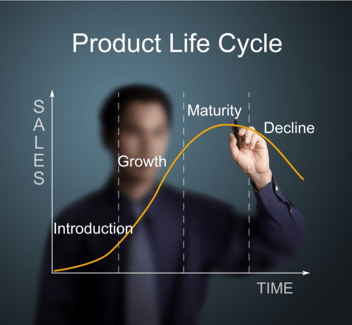Product-Led Growth (PLG) is a concept that has been gaining traction in the world of business and digital product development. It is an approach to growing a successful business by leveraging the value of the product itself to make the sale. By understanding the user, crafting a great user experience, and developing innovative marketing strategies, businesses can grow organically based on the quality and appeal of their products.
In this blog, we’ll discuss the definition of Product-Led Growth, the benefits of using it, and the challenges businesses may face when making this transition. We’ll also explore different strategies to help make PLG successful for any business.
Definition of Product-Led Growth
Product-Led Growth is a business model that focuses on using product features, design, and user experience to drive customer growth. PLG is based on a customer-centric approach that puts the product at the center of the business strategy. It involves creating an enjoyable and engaging user experience (UX) that is tailored to different customer needs and behaviors. It also involves designing a product roadmap that incorporates feedback from customers and keeps them engaged over time.
The goal of PLG is to create a powerful customer acquisition and retention engine by focusing on the product first and foremost. By making customer experience central to the product creation process, businesses can develop products that truly solve their customers' problems. This leads to loyal customers who are more likely to recommend their product to others and make more purchases.
Benefits of Product-Led Growth
One of the most significant advantages of employing PLG is that it may assist firms in developing a sustainable and profitable customer base. Companies can keep customers engaged and interested in their products for extended periods of time by focusing on the user experience and providing superior products. This increases customer retention, allowing firms to produce more income over time.
Another advantage of PLG is that it encourages organizations to prioritize customer feedback and data over marketing strategies. Businesses must ensure that their product is of the highest quality and fits the specific needs of their target market by listening to and responding to their consumers' wants during the product design and development process. This enables organizations to provide more value to their customers, resulting in greater customer loyalty and satisfaction.
Challenges of Product-Led Growth
Product-Led Growth is not without its challenges. As with any new business model, there is a learning curve, and businesses may need to experiment with different strategies to find the best approach for their product. Companies also need to invest time and resources in understanding customer needs, developing the right user experience, and crafting the right products.
Additionally, businesses must understand that PLG requires an ongoing investment. Companies need to continually innovate, evolve their product roadmap, and adjust their strategy based on customer feedback. This means that companies need to be ready to make changes and adapt quickly as customer needs and preferences change.
Strategies for Successful Product-Led Growth
To reap the benefits of Product-Led Growth, businesses must be ready to invest in their products and prioritize customer feedback. Here are some strategies to help make success a reality:
- Make customer feedback the foundation: Gather feedback from customers throughout the product creation process and use it to inform your decisions.
- Keep UX design in mind: Make sure that the design and features of your product are tailored to meet the needs of your customers.
- Invest in marketing: Create campaigns that focus on the benefits of your product and drive user engagement.
- Leverage data to inform decisions: Track and analyze customer data, usage patterns, and feedback to make decisions and create a better user experience.
Product-Led Growth is an innovative approach to growing a successful business. By understanding the user and creating an enjoyable user experience, companies can drive customer acquisition, retain customers over time, and generate more revenue. It also encourages businesses to focus on customer feedback, build meaningful relationships with their customers, and create products that truly solve their customers' problems.
Although Product-Led Growth presents challenges, businesses that are willing to invest in this strategy and prioritize customer feedback can reap the rewards of a loyal and engaged customer base. We hope this blog has provided useful information to help you get started with Product-Led Growth and create an effective strategy to ensure success. We wish you the best of luck on your Product-Led Growth journey!



